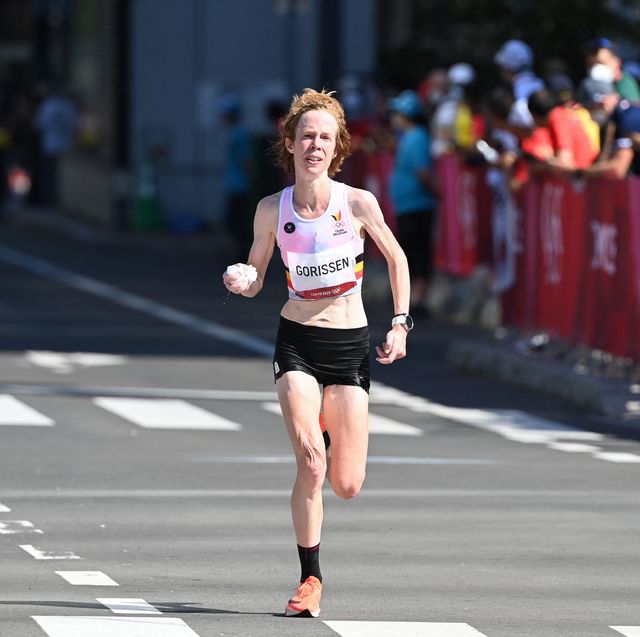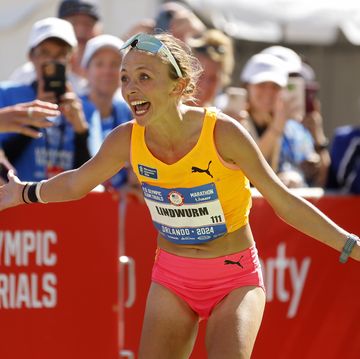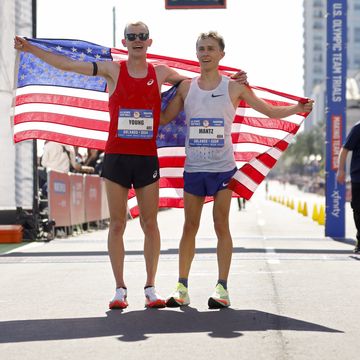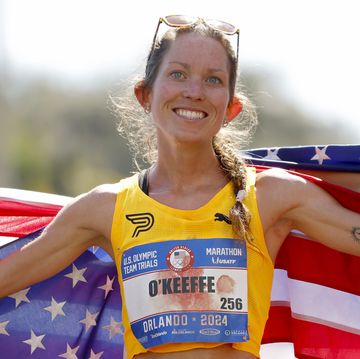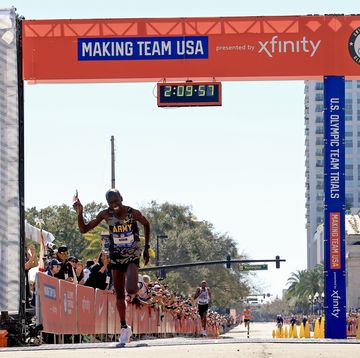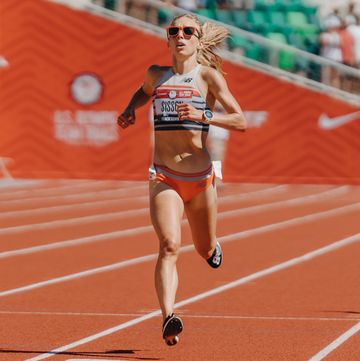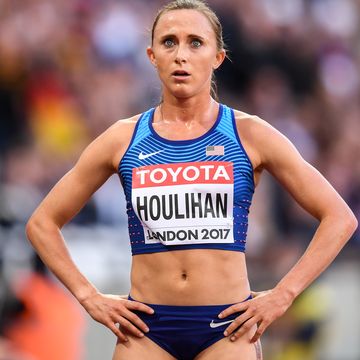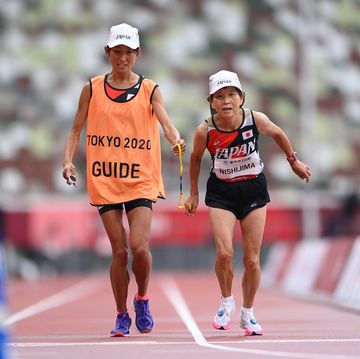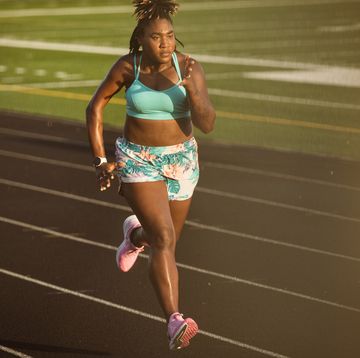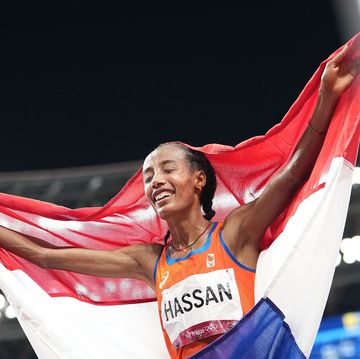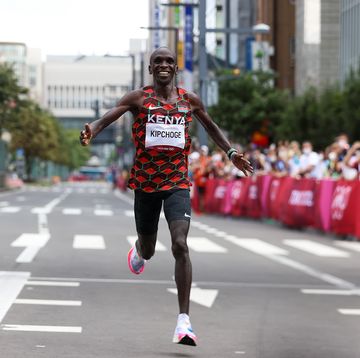At the end of the Olympic marathon in Tokyo, a Belgian runner stood on the road, facing a camera, for a post-race interview. It’s apparent that she was abundantly content with her performance, with her beaming smile showing that she gave everything she had to the race that day.
So, when the man on the other side of the camera told her she placed 28th, she didn’t believe him.
“That’s not possible,” the runner, Mieke Gorissen, said in Dutch.
“It is,” he assured her. As though he needed to convince her, read out her time: 2:34:24.
“That’s not possible,” Gorissen repeated. She then allowed her composure to deteriorate, as she should, and began to cry.
As Gorissen slowly came to the realization that she exceeded her own expectations, she turned her heart inside out to share her joy with all of us on that interview. She continued to sob gently, and her shoulders shook with relief, surprise, disbelief, exhilaration, and pride. She repeated it again, softer this time, that’s not possible, but this time she knew it was true, though understandably unbelievable. She had placed 28th out of 88 runners in the Olympic marathon.
What do we know about Gorissen? Netherlands News Live tells us that she is a 38-year-old math and physics teacher who hails from Diepenbeek, Belgium. She knits. She reads. Her Instagram account shows photos of fuzzy socks, papers with equations, cats, livestock, some running, sunsets, and an adorable donkey. Only recent shots of her running in her country’s kit, with a look of steady determination, give away the fact that she is an Olympian.
Gorissen took up running in her 30s, as many of us do, for the exercise. When she started, she ran a 10K loop casually a few times a week. Then in 2018, she asked a running coach to help her improve her form. With some guidance, she realized she was talented at the sport, and she had a passion for it. She soared through miles, won the Belgium cross-country national championship, and then challenged herself to run the marathon.
The marathon, of course, for so many distance runners, is the ultimate test. Like Gorissen, we think, yes 10K is nice, but can I handle 26.2? Gorissen answered that question by running two marathons well enough that her third was at the 2021 Olympics. (Sound familiar?) Though we pedestrian runners may not make it to the Olympics or place 28th in any race, only 0.5 percent of humans have completed a marathon. With that in mind, the most beautiful, rational, and relatable line Gorissen uttered in her post-race interview was, “I was already happy to finish the race.” (Also: “I think I’ve lost a toenail.”)
If there is ever a time to cry uncontrollably and joyfully, it is at the end of a marathon. And isn’t that how all of us should feel at the end of 26.2 miles? Even if we are not in the top 100, or didn’t PR, or finished dead-freaking last, shouldn’t we give ourselves the room to feel, at the very least, happy?
As I watched Gorissen after her race, then saw her emotions overwhelm her, I cried, too. I felt a lightness and a satisfaction that I desired to feel at the end of a race. I know I will never run in the Olympics, but I believe all runners should shine on a day when they run to the best of their ability. Though I’ve finished three marathons, I have never crossed the finish line and reacted with pure joy. I wondered if I ever would.
Then I realized: I would need to allow the finish line to take over. Many of us marathoners cry—not tears of happiness, but tears of disappointment at the end. Our bodies are depleted, and as we stumble from the timing mat to the table with the banana, we fumble with our watch to see our time, analyze our splits, and maybe figure out if we hit our goals. But why?
We forget that the distance itself is an accomplishment, no matter what time we ran. It is a beautiful test of wills, one of the greatest athletic achievements there is. It is an item on many people’s bucket lists that never gets crossed off. Plus, finishing a marathon means that you ran not just 26.2 miles of the course, but all the miles before that in preparation for that final moment.
So, let’s be like Gorissen. Let’s allow ourselves to be happy to have finished. Beam as you reflect on the work that went into each foot strike and arm swing. Later is when you can think about the data. But in the moments immediately after, be there at the finish line and nowhere else. Feel your heart pounding, your legs cramping, the salt on your skin, your sweat-soaked shorts hanging from your beat-up body. Give yourself permission to yell, smile, laugh, and cry simultaneously. Because you did it. And hey, you never know; you might have placed 28th.

